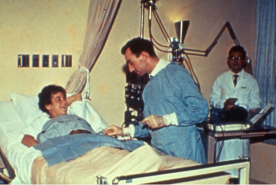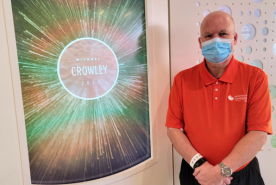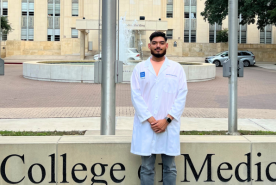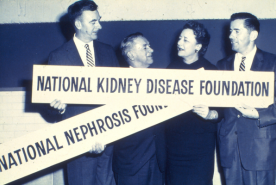What is a preemptive transplant?
If you have kidney disease, getting a transplant before you need to start dialysis is called a preemptive transplant. Getting a transplant not long after kidneys fail (but with some time on dialysis) is referred to as an early transplant. Both have benefits. People who get a preemptive or early transplant receive their kidney when their health is generally good, which allows you to stay healthier and live longer.
What are the benefits?
According to recent studies, getting a preemptive or early transplant has many benefits, including:
- The risk that your body will reject the new kidney is less
- Most people live longer and have a better quality of life
- You avoid being on dialysis
- You have a less restrictive diet than you would have on dialysis
- Most people stay healthier and avoid some of the health problems associated with dialysis
Where does a kidney for preemptive transplant come from?
A donated kidney can come from a living donor or a deceased donor. Usually, preemptive transplants are from living donors. A living donor is someone who chooses to donate a kidney when they are healthy and alive. Although you may be able to get a kidney from a deceased donor for preemptive transplantation, you may have to wait longer.
How do I start the process?
Your healthcare professional can refer you to a transplant center for tests, or you can contact a local transplant center directly. If a family member or friend is willing to donate a kidney living donor, the tests can be started right away. After completing the evaluation, if you are a candidate for transplant and your living donor is a match, surgery can be scheduled.
For many recipients, getting a preemptive or early transplant means you are able to save time and money, keep working, as well as see benefits of better physical health that come with a new kidney. If you want to consider preemptive transplantation speak with your healthcare professional to help understand the process and if it is a right fit for you.

















